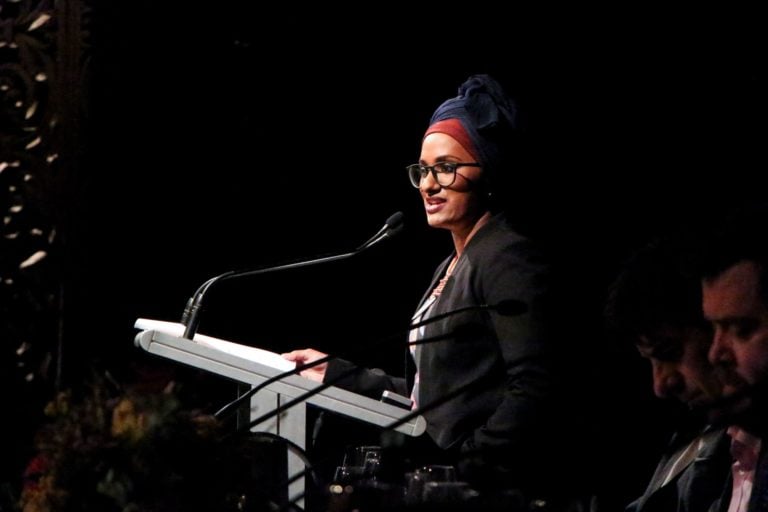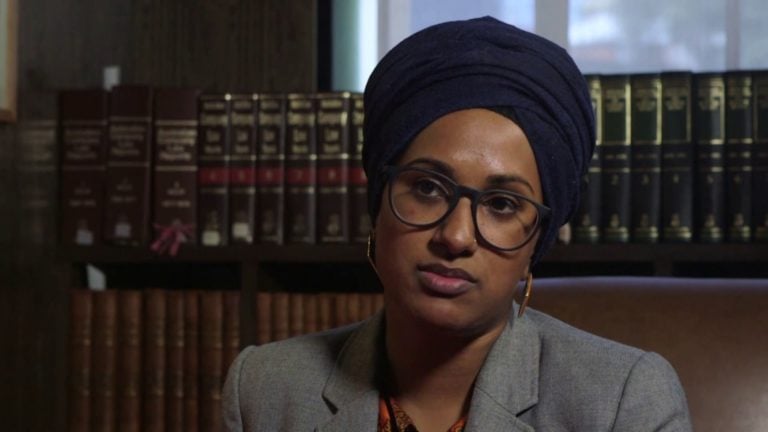There is a cloud of confusion looming above migrant communities in Australia, for the past couple of years, as there are many attempts on a political level to implement changes to the legislation that regulates citizenship, but also other aspects of life within the migrant communities.
Last week, the Minister for Citizenship and Multicultural Affairs confirmed, in a statement to Neos Kosmos, that there are thoughts of introducing some form of English language test as a prerequisite for Australian citizenship.
This matter, along with the waiting period for permanent residents to be eligible for citizenship, is included in a bill submitted by Pauline Hanson that is yet to be debated in parliament. Minister Alan Tudge assured Neos Kosmos that the English language test will be to ensure that prospective citizens have knowledge of conversational English.
Shen Narayanasamy begs to differ. A human rights lawyer with a Tamil background, she is the director of Colourcode – the migrant rights advocacy organisation that sprung out of the activist group GetUp!
Ms Narayanasamy is very worried about the proposed changes.
“The government initially wanted prospective citizens to score IELTS results of [Band] 5 or 6; now they are saying [Band] 4,” she points out.
“But according to the association of English teachers this is still [an] academic level of English language and it would still have the same impact in excluding hundreds of thousands of migrants from being able to access citizenship. So it’s still a big concern. Putting an English language test is very easy to sell to the public; you’re not abolishing multiculturalism, like Pauline Hanson wants to do, you’re just saying that everybody needs to speak academic English. But we know from our communities who are going to be affected. We know the worst impact will be on migrant women. It really changes Australian migration. We [haven’t had] an English language test since the White Australia policy, for good reason,” she says.

“Imagine what it’s like, to not have great English knowledge and have to say that you are entitled to citizenship because you’ve been living in this country and working as hard as your neighbour. People feel embarrassed and ashamed a lot in our communities.”
To address these concerns and respond to the queries of their members, Colourcode is holding National Information Roadshow Sessions for migrants, alongside Welcome to Australia and Fair Go for Migrants as well as another seven community organisations, to explain the proposed changes to those affected.
Ms Narayanasamy says “We’re bringing along a number of experts so people can ask questions because it’s kind of complicated legislation and people who are busy with their lives can’t read through so much legislation and work it out.
“Many think that these changes have already passed, so we need to explain that they don’t have to meet these requirements yet. We’re also going to talk about the history of migration in Australia and Australian multiculturalism, what it relies on and why it needs to be defended; and we will discuss what we can do as people of this community to try and defend Australian multiculturalism, because it’s clearly under attack.”
Ms Narayanasamy is adamant about this. “It is not only the English test; there are other elements to the bill which are also concerning,” she says, referring to the vaguely described “integration” requirements.
“The specific requirements can be set up by regulations, so that they can be decided by the department,” she says and points to several ministerial statements about factors such as where children go to school or the level of interaction of people with the Australian community. “Our view of the citizenship changes that were proposed by Pauline Hanson and by the government is that they will have a significantly detrimental effect on Australian migrants and Australia’s multicultural society,” she warns.
“It will create a second-class society, with people who have been living and working here but are prevented from accessing citizenship because they do not meet either English or integration requirements or they are trying to be part of their communities or express their religion or culture. This is a huge step away from Australia’s multiculturalism, which saw it as important that people be allowed and supported to express their own culture as well as be a part of the Australian society.”
For her, this is an issue that should concern anyone involved in multicultural communities.
“We need to go out and defend multiculturalism and explain why it’s important,” she says.
“Because if we don’t, we are really at risk of seeing it go. In terms of citizenship, obviously these changes will impact new migrants, but it is impacting our society in general; it really undermines the basis on which many of us happily live here; which is not feeling any conflict or tension about expressing our language and our identity and our religion while at the same time being legally and ethically equal to other Australians from an Anglo-Celtic heritage.
“Today, culturally and linguistically diverse communities, non-European communities make up 24 per cent of Australia’s population. Including European, non-English-speaking communities, such as the Greek and Italian, we are approaching 40 per cent of the community.”
If her description sounds like a call to action, it is because this is exactly what it is.
“What it will take is a really sustained campaign by people who have been here for a very long time alongside new migrants, working together as a community to talk about the benefits of multiculturalism and the problems with trying to unwind it even without explicitly doing so. It’s important for communities who have been here for a long time to defend what we built,” she says and points to the risks entailed in the integration requirement.

“The kind of multiculturalism that the Greek community was instrumental in building allowed for language, religion and culture diversity and holding on to those traditions at the same time as being legally equal in Australia. I don’t think that Greek people fought for multiculturalism only for their own sake. It was a movement by a lot of people who said that we should be free to practice our religion, our language.
“The multiculturalism that our parents and grandparents built and defended in this country, was really hard won. To think that we should stand by and let that happen is to betray that legacy. Even if you’re second or third generation, it’s important to keep the tradition and have that freedom to not just assimilate to this culture, if you don’t want to.
“I know a lot of third-generation people who are teaching their children languages and go to their home country and do festivals. Yes, you don’t have to sit in a language test, but it doesn’t matter. This unwinds everything. If we start undermining it, who knows how it will stop?”
National Information Roadshow CITIZENSHIP AND FAMILY REUNION INFORMATION SESSIONS
All sessions are free, and you will need to register your interest in attending. Go to https://colourcode.org.au/roadshow/
VIC: Monday 28 May, 6.00 – 8.00 pm, Upton Room, Box Hill RSL, 26-28 Nelson Rd, Box Hill.
NSW: Wednesday 30 May, 6.00 – 8.00 pm, Biddegal Function Room, Club Central, 2 Crofts Avenue, Hurstville.
SA: Tuesday 5 June, 6.00 – 8.00 pm, The Welcome Centre, 100 Drayton St, Bowden.
